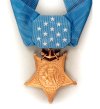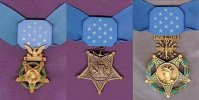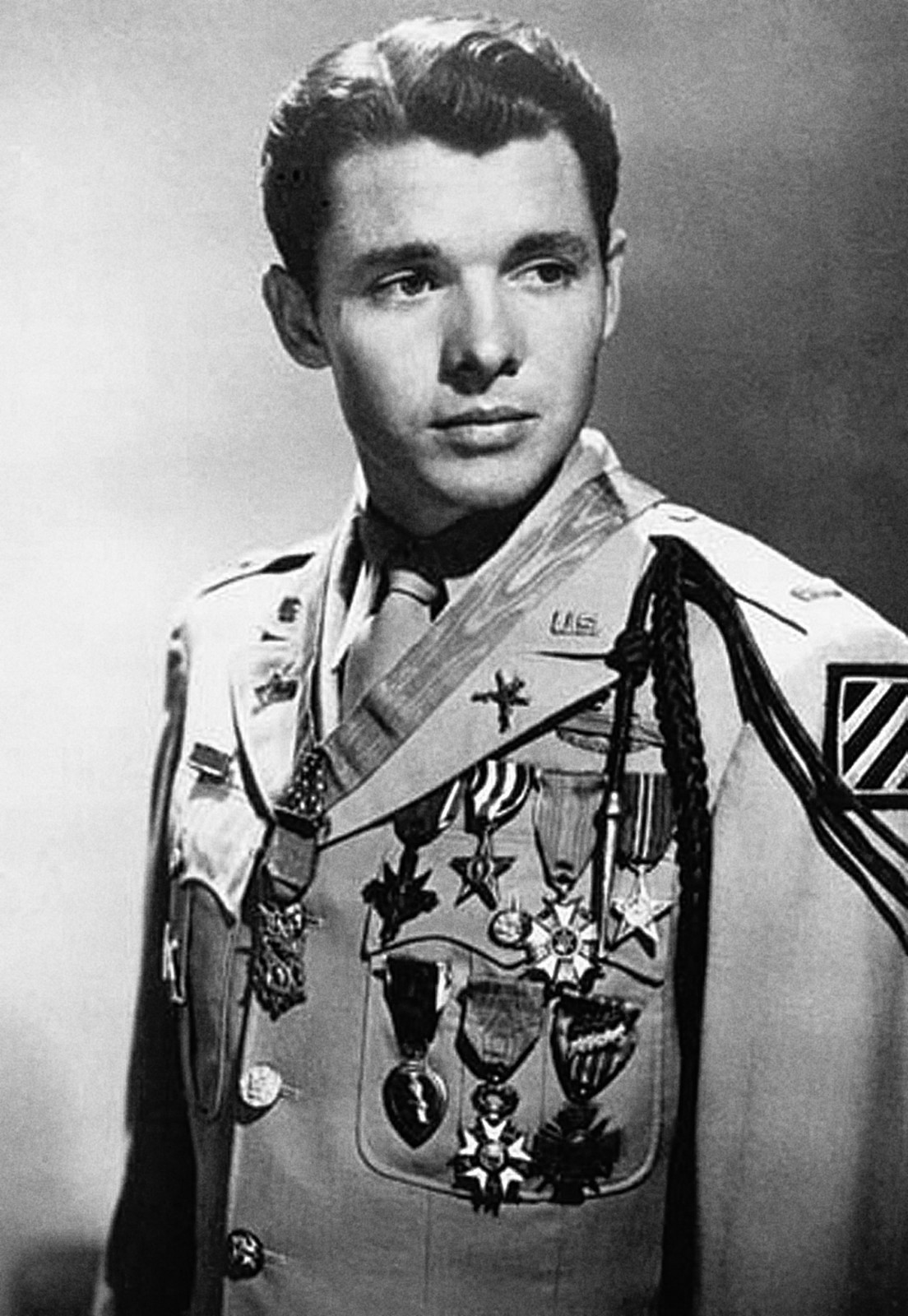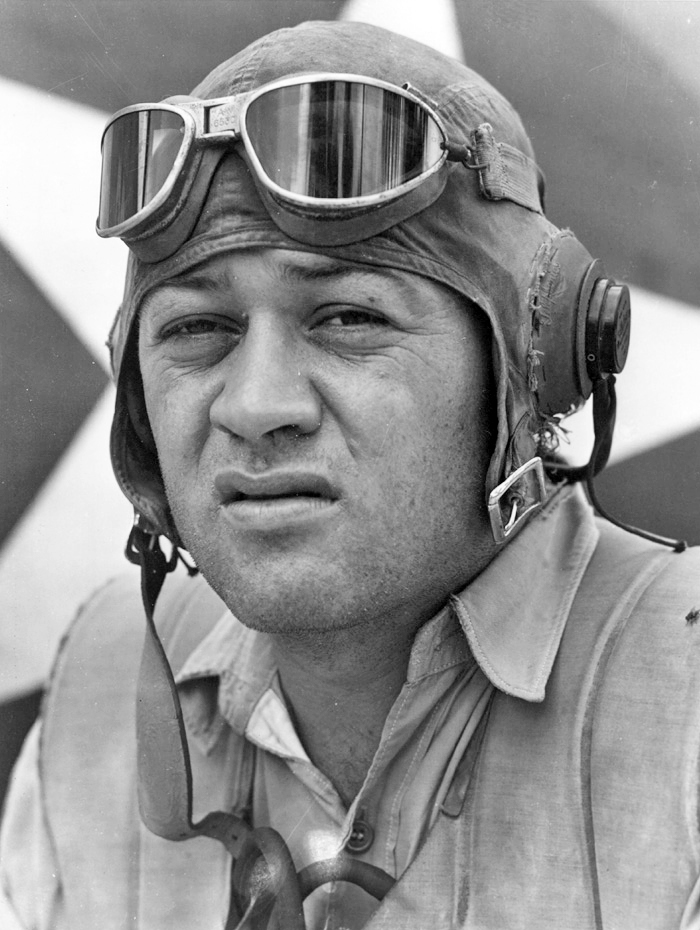army judge
Super Moderator
- Jurisdiction
- US Federal Law
"
For conspicuous gallantry and intrepidity at the risk of life above and beyond the call of duty." So begins the official citation of every Medal of Honor when it's awarded to a recipient by the president of the United States and presented in the name of the United States Congress.
Since its inception during the Civil War, 3,517 Americans have received our nation's highest military award for valor.
Today, only 63 of these selfless patriots remain with us.
Congress believed the federally recognized day was needed to counter declining public awareness of the Medal of Honor and that it would help national, state, and local organizations to foster appreciation and recognition of Medal of Honor recipients.
March 25 was selected as that was the day that Private Jacob Parrott became the first person to receive the Medal of Honor in 1863 as part of "Andrews Raiders."
This National Medal of Honor Day, some 23 Medal of Honor recipients will lay a wreath at the Tomb of the Unknown Soldier.
The "unknowns" buried there are each Medal of Honor recipients.
The Congressional Medal of Honor Society takes part in this ceremony and has done an outstanding job in organizing other events at the New York Stock Exchange, the Medal of Honor Memorial in Indianapolis, Indiana, and at its headquarters onboard the USS Yorktown in Mount Pleasant, S.C.
And the society has done much to tell the story of the Medal of Honor through its educational programs, Citizen Honors Awards, museum, and its partnership with the American Battlefield Trust to create the Medal of Honor Valor Trail.
Few presidents have awarded more Medals of Honor than President Harry S. Truman.
In making the award to WWII and Korean War heroes, Truman would often remark, "I would much rather have that Medal around my neck than to be president of the United States. It is the greatest honor that can come to a man. It is an honor that all of us strive for, but very few of us ever achieve."
President Truman was right.
It is the greatest honor America can bestow upon any of its citizens.
Recipients are the epitome of valor, selfless service, love of country, and love of fellow man. However, there is one other trait that is common among Medal of Honor recipients and that is humility.
When I had the honor of serving as Deputy Assistant Secretary of the Army, I got to know then Colonel Robert Foley, who served in our office.
Bob Foley was a recipient of the Medal of Honor for his actions in Vietnam in 1966.
He's truly one of the humblest men I've ever known, and I learned a lot from him.
After his retirement as a Lieutenant General, he went on to serve a director of Army Emergency Relief.
That's Bob Foley – still going beyond the call of duty to help our Military and their families. And that's the same selfless and humble spirit that characterizes America's Medal of Honor recipients.
We see this humility in Medal of Honor recipient and retired Navy SEAL Michael Thornton who said, "As long Michael Thornton lives, that medal will always stand for them. Not for me. Not for what I've done, but for what I was trained to do, and what they were trained to do to give us our freedoms today."
And this humility is further exemplified by William Carney, the first African American to earn the Medal of Honor as a result of his actions at Fort Wagner on Morris Island, S.C.
Rather than pursuing his dream of going into the ministry, he joined the U.S. Military because as he explained, "I could best serve my God serving my country and my oppressed brothers."
There is much history surrounding the Medal of Honor.
All services, including the new Space Force, are authorized to award it.
Only one coast guardsmen received it — Signalman First Class Douglas Munro, for his actions at Guadalcanal. Dr. Mary Walker, the Union Army's only female surgeon during the Civil War is the only female recipient.
And, there have been two Father-Son Medal of Honor recipients: Arthur and Douglas MacArthur; and Theodore Roosevelt and Theodore Roosevelt, Jr.
President Ronald Reagan was right when he reminded us, "Freedom is never more than one generation away from extinction."
Our nation's 40th president went on to say, "We didn't pass it to our children in the bloodstream. It must be fought for, protected, and handed on for them to do the same, or one day we will spend our sunset years telling our children and our children's children what it was once like in the United States where men were free."
The story of the Medal of Honor is an American story of courage, selfless service, commitment to duty, and love of country.
It's a story that must be told to this and future generations. Yes, education is a national security issue. Teach your kids about the Medal of Honor and what it means to be an American. And thank God for giving us heroes such as these.
Van Hipp is Chairman of American Defense International, Inc. He is the former Deputy Assistant Secretary of the U.S. Army and author of "The New Terrorism: How to Fight It and Defeat It." He is the 2018 recipient of the Queen Elizabeth II Sept. 11 Garden Leadership Award for National Security. Read Van Hipp's Reports — More Here.

For conspicuous gallantry and intrepidity at the risk of life above and beyond the call of duty." So begins the official citation of every Medal of Honor when it's awarded to a recipient by the president of the United States and presented in the name of the United States Congress.
Since its inception during the Civil War, 3,517 Americans have received our nation's highest military award for valor.
Today, only 63 of these selfless patriots remain with us.
March 25 was established as National Medal of Honor Day by Congress in 1990 and we have observed it every year since 1991.Congress believed the federally recognized day was needed to counter declining public awareness of the Medal of Honor and that it would help national, state, and local organizations to foster appreciation and recognition of Medal of Honor recipients.
March 25 was selected as that was the day that Private Jacob Parrott became the first person to receive the Medal of Honor in 1863 as part of "Andrews Raiders."
This National Medal of Honor Day, some 23 Medal of Honor recipients will lay a wreath at the Tomb of the Unknown Soldier.
The "unknowns" buried there are each Medal of Honor recipients.
The Congressional Medal of Honor Society takes part in this ceremony and has done an outstanding job in organizing other events at the New York Stock Exchange, the Medal of Honor Memorial in Indianapolis, Indiana, and at its headquarters onboard the USS Yorktown in Mount Pleasant, S.C.
And the society has done much to tell the story of the Medal of Honor through its educational programs, Citizen Honors Awards, museum, and its partnership with the American Battlefield Trust to create the Medal of Honor Valor Trail.
In making the award to WWII and Korean War heroes, Truman would often remark, "I would much rather have that Medal around my neck than to be president of the United States. It is the greatest honor that can come to a man. It is an honor that all of us strive for, but very few of us ever achieve."
President Truman was right.
It is the greatest honor America can bestow upon any of its citizens.
Recipients are the epitome of valor, selfless service, love of country, and love of fellow man. However, there is one other trait that is common among Medal of Honor recipients and that is humility.
When I had the honor of serving as Deputy Assistant Secretary of the Army, I got to know then Colonel Robert Foley, who served in our office.
Bob Foley was a recipient of the Medal of Honor for his actions in Vietnam in 1966.
He's truly one of the humblest men I've ever known, and I learned a lot from him.
After his retirement as a Lieutenant General, he went on to serve a director of Army Emergency Relief.
That's Bob Foley – still going beyond the call of duty to help our Military and their families. And that's the same selfless and humble spirit that characterizes America's Medal of Honor recipients.
We see this humility in Medal of Honor recipient and retired Navy SEAL Michael Thornton who said, "As long Michael Thornton lives, that medal will always stand for them. Not for me. Not for what I've done, but for what I was trained to do, and what they were trained to do to give us our freedoms today."
And this humility is further exemplified by William Carney, the first African American to earn the Medal of Honor as a result of his actions at Fort Wagner on Morris Island, S.C.
Rather than pursuing his dream of going into the ministry, he joined the U.S. Military because as he explained, "I could best serve my God serving my country and my oppressed brothers."
There is much history surrounding the Medal of Honor.
All services, including the new Space Force, are authorized to award it.
Only one coast guardsmen received it — Signalman First Class Douglas Munro, for his actions at Guadalcanal. Dr. Mary Walker, the Union Army's only female surgeon during the Civil War is the only female recipient.
And, there have been two Father-Son Medal of Honor recipients: Arthur and Douglas MacArthur; and Theodore Roosevelt and Theodore Roosevelt, Jr.
President Ronald Reagan was right when he reminded us, "Freedom is never more than one generation away from extinction."
Our nation's 40th president went on to say, "We didn't pass it to our children in the bloodstream. It must be fought for, protected, and handed on for them to do the same, or one day we will spend our sunset years telling our children and our children's children what it was once like in the United States where men were free."
The story of the Medal of Honor is an American story of courage, selfless service, commitment to duty, and love of country.
It's a story that must be told to this and future generations. Yes, education is a national security issue. Teach your kids about the Medal of Honor and what it means to be an American. And thank God for giving us heroes such as these.
Van Hipp is Chairman of American Defense International, Inc. He is the former Deputy Assistant Secretary of the U.S. Army and author of "The New Terrorism: How to Fight It and Defeat It." He is the 2018 recipient of the Queen Elizabeth II Sept. 11 Garden Leadership Award for National Security. Read Van Hipp's Reports — More Here.





